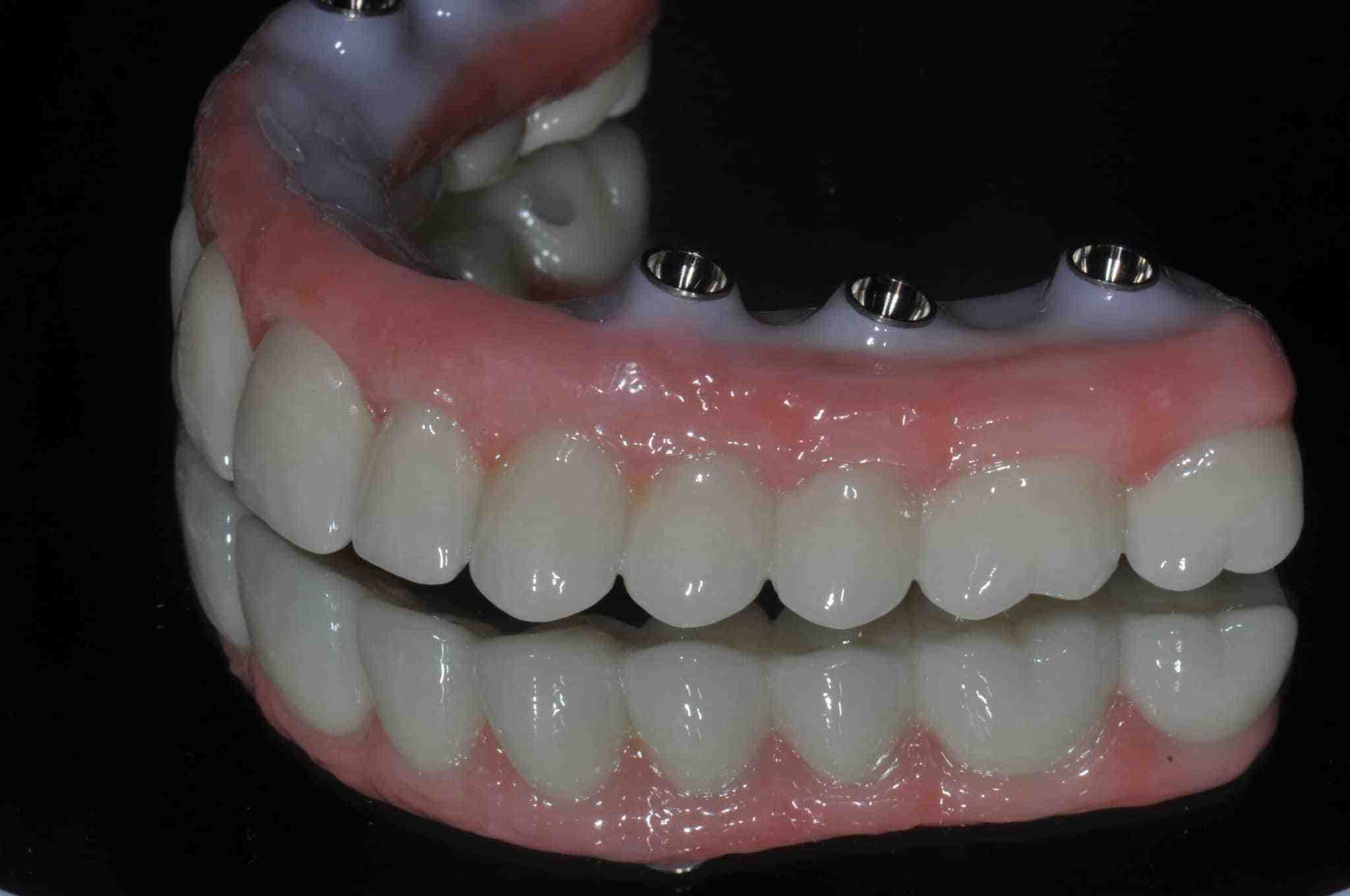What helps excruciating tooth pain?
What does cellulitis look like?
Contents
- 1 What does cellulitis look like?
- 2 What are the signs that cellulitis is getting worse?
- 3 How long does cellulitis take to spread?
- 4 What is the strongest antibiotic for cellulitis?
Cellulitis initially appears as swollen skin to pink. The affected area may quickly become a deep red, swollen, warm, soft and increase in size as the infection spreads. On the same subject : Are teeth implants painful?. Occasionally, red lines may appear on the outside from cellulitis. Waves or molds filled with pus may also be present.
What are the signs that cellulitis is getting worse?
Call your doctor or nurse right now or seek medical help immediately: To see also : Can I remove my own tooth?.
- You may have symptoms that your infection is getting worse, such as: Pain, swelling, fever, or redness. Red veins leading from space. Dirt from the area. Fever.
- You get a rash.
Can cellulitis get worse before it gets better? Symptoms of cellulitis usually disappear after a few days of antibiotic treatment. However, the symptoms of cellulitis often get worse before they improve, perhaps because of bacterial infection, the release of substances that cause cell damage is released.
When should I be worried about cellulitis?
See a doctor if you have symptoms of cellulitis. See the article : How much is a tooth implant out of pocket?. See a doctor right away if the red part of the skin is rapidly spreading or if you have a fever or a cold.
When does cellulitis become dangerous?
If you have any signs or symptoms of cellulitis, see your doctor as soon as possible. If the symptoms are getting worse or if you have a fever or a cold, seek emergency help, as the infection can become severe or immediate.
When should I go to hospital for cellulitis?
Contact your doctor as soon as possible if: your symptoms worsen after 48 hours. Your symptoms have not improved in a week. you have more symptoms, such as high fever (fever) or vomiting.
Can cellulitis get worse while on antibiotics?
Cellulitis is a common skin infection that is usually treated with oral antibiotics. In some cases, these infections can get worse even if you take antibiotics. This could be a sign that you need strong or different antibiotics to treat the infection.
What happens if antibiotics don’t work on cellulitis?
What if I do not seek treatment? Without antibiotic treatment, cellulitis can spread outside the skin. It can enter your lymph nodes and spread to your bloodstream. Once it reaches your bloodstream, bacteria can quickly cause the life-threatening infection known as blood poisoning.
Can cellulitis spread while on antibiotics?
Cellulitis is usually caused by one of two types of bacteria: Staphylococcus and Streptococcus. Both are treated with antibiotics, and the treatment is very effective. However, from time to time, cellulitis can get worse. It can spread quickly if left untreated.
How long does it take for antibiotics to work on cellulitis?
Local studies for inflammation, warmth, and redness should begin to improve one to three days after the onset of antibiotics, although these symptoms may last for weeks. two. If the red area becomes larger, swollen, or lighter, call your healthcare provider.
How long does cellulitis take to spread?
The time it takes for symptoms to start varies, depending on which bacteria cause cellulitis. For example, a person with cellulitis caused by Pasteurella multocida, which is usually found in animal bites, may have symptoms less than 24 hours after the bite.
Can cellulitis spread throughout the body? Some people may get a fever and a cold. Cellulitis can occur anywhere in the body, but it is more common in the legs and feet.
Does cellulitis spread fast?
Cellulitis is an infection of the deeper parts of the skin and lower cells. It can be dangerous if not treated immediately. The infection occurs spontaneously and can spread to the body quickly.
Should I rest with cellulitis?
To diagnose cellulitis, you should: Relax the area. Elevate the area to reduce swelling and discomfort. Use over-the-counter painkillers such as acetaminophen or ibuprofen to relieve pain, as well as reduce your fever.
Is cellulitis an emergency?
Some cases of cellulitis are sudden. Always consult your healthcare provider immediately if you notice any of the following symptoms: Very large area of red, swollen skin. Fever.
How fast does cellulitis progress?
It usually occurs in areas of the body with edema (inflammation / low flow), injury area, surgical site, or near active skin rash. With proper treatment and care, the small wounds of cellulitis can be healed in five or seven days.
When should I be concerned about cellulitis?
See a doctor if you have symptoms of cellulitis. See a doctor right away if the red part of the skin is rapidly spreading or if you have a fever or a cold.
Does cellulitis spread quickly?
Cellulitis is an infection of the deeper parts of the skin and lower cells. It can be dangerous if not treated immediately. The infection occurs spontaneously and can spread to the body quickly. A severe infection can spread inside the body, and can put lives at risk.
When is cellulitis an emergency?
When Cellulitis Passes Abrupt The red or soft area loses its strength. The red area becomes larger or harder. The black area feels soft, warm and swollen. The pain gets worse.
When should I worry about cellulitis?
See a doctor if you have symptoms of cellulitis. See a doctor right away if the red part of the skin is rapidly spreading or if you have a fever or a cold.
When are you hospitalized for cellulitis?
In most cases, the symptoms and signs of cellulitis disappear after a few days. You may need to go to the hospital and get an antibiotic (intravenous) if: Symptoms and symptoms do not respond to oral contraceptives. Signs and general signs.
What is the strongest antibiotic for cellulitis?
The best antibiotics for treating cellulitis include dicloxacillin, cephalexin, trimethoprim with sulfamethoxazole, clindamycin, or doxycycline antibiotics.
What helps cellulitis heal faster? Redness, swelling, pain, and pus or other fluid from the wound are signs of infection. Covering the wound with a clean bandage can help it heal faster. The tablet keeps the wound clean and allows it to heal. Increasing skin protection, such as petrolatum, can also help the skin to heal faster.
What kind of cream can you put on cellulitis?
These help to protect the area. Many commercial products, such as petroleum jelly, are good for use. Ask your healthcare provider about the specific cosmetics you should use.
What ointment is good for cellulitis?
Normal skin can cause cellulitis, but it usually occurs when bacteria enter an open wound. The best antibiotics for treating cellulitis include dicloxacillin, cephalexin, trimethoprim with sulfamethoxazole, clindamycin, or doxycycline antibiotics.
What’s the best thing to put on cellulitis?
Wash the area with clean water 2 times a day. Do not use hydrogen peroxide or alcohol, which can slow down healing. You can cover the area with a thin layer of petroleum jelly, such as Vaseline, and non-abrasive bandage. Pour extra petroleum jelly and replace the bandage if necessary.
Can you put Neosporin on cellulitis?
Cellulitis can be treated with many different topical agents such as Silvadene, Bacitracin and Neosporin to reduce inflammation and aid in healing.
What happens if antibiotics don’t work on cellulitis?
What if I do not seek treatment? Without antibiotic treatment, cellulitis can spread outside the skin. It can enter your lymph nodes and spread to your bloodstream. Once it reaches your bloodstream, bacteria can quickly cause the life-threatening infection known as blood poisoning.
What happens if antibiotics don’t work for skin infection?
Once the bacteria are resistant, the original antibiotics will no longer kill them. These germs can grow and spread. They can cause illnesses that are difficult to treat. They can sometimes spread resistance to other bacteria they come in contact with.
Can cellulitis be antibiotic resistant?
Cellulitis or surgical infection is usually caused by Gram-positive bacteria such as Staphylococcus aureus or Streptococcus pyogenes. The surgical site or anti-antibiotic wounds are often screened and found to be mainly caused by MRSA.
How long does it take for antibiotics to work for cellulitis?
Most people with cellulitis respond to antibiotics within 2 to 3 days and begin to improve. In rare cases, cellulitis can spread into the bloodstream and become severe.
What happens if cellulitis does not respond to antibiotics?
However, from time to time, cellulitis can get worse. It can spread quickly if left untreated. It may not respond with antibiotics. This can lead to a medical emergency, and without prompt attention, cellulitis can be life-threatening.
Can cellulitis get worse while on antibiotics?
Cellulitis is a common skin infection that is usually treated with oral antibiotics. In some cases, these infections can get worse even if you take antibiotics. This could be a sign that you need strong or different antibiotics to treat the infection.





Comments are closed.